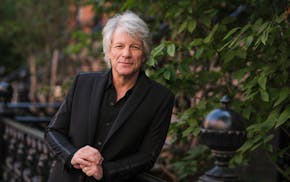Disposable diapers don't have to put the environment in deep doo-doo anymore.
Biodegradable, flushable brands like gDiapers and Broody Chick have been around for years, available at co-ops, eco-friendly stores and online. Some can even be put in composting bins, but that doesn't appeal to everyone.
Now there's yet another option for green-living parents -- having someone else cart away and recycle your soiled compostable didies when they drop off a fresh pack. The bonus: Instead of being merely biodegradable, the diapers are actually recycled for another use, winding up at a commercial composting facility that turns them into a nontoxic, nutrient-rich compost in as little as five months.
Diapers to Daisies is a new option being offered to customers of Do Good Diapers of northeast Minneapolis, which delivers and picks up cloth diapers.
Do Good owner Peter Allen said it's one of only a few companies in the country trying this at the moment, probably due more to lack of infrastructure than lack of interest.
"You need to find a commercial composter to work with, and there's only a few in Minnesota so far that can handle them."
So far 15 customers have bought the diapers -- which look and feel similar to regular disposables, minus the decorations -- for full-time or supplemental use, he said.
"They're super-convenient," said Matt Stangl of St. Louis Park, who has been using them for several weeks on his 7-month-old son, Eli, at bedtime, because they keep him drier through the night. "They're a little bit stiffer than the regular disposables, but he doesn't seem to mind."
At about $14 for a pack of 30 to 40, depending on size, the compostables add about $28 a month to the family's diaper costs, he said.
Leah Ybarra of Roseville recently began field testing the new compostables on her third child, 1-year-old Evan, after winning a month's worth of service from Do Good as a door prize. At first she was skeptical, having experimented with various flushable, biodegradable diaper brands and finding that quality and absorbency varied widely.
"I've tried about every kind of diaper there is," said Ybarra, who primarily uses cloth diapers that she launders herself. "When I was using regular disposables, I'd get a blowout at least once a week."
She cares about the environment, she said, but her primary motivation to use Diapers to Daisies is "the convenience of disposables without the chemicals on my baby's skin," she said.
Leading diaper manufacturers Procter & Gamble and Kimberly-Clark do not sell compostable diapers.
In 1996, P&G pulled ads claiming Pampers and Luvs were 100 percent compostable when attorneys general from several states found them to be misleading. The company did not respond to requests for comment.
Do Good's compostable diapers are adequately absorbent, said both Ybarra and Stangl, aside from a few nighttime leakage incidents.
How is something that's able to break down so quickly also able to hold baby poo without leaking? The diapers are made from Ingeo, a biodegradable corn-based polymer strong enough to use in making water bottles. (Ingeo is produced by Minnesota-based Cargill's NatureWorks LLC division.)
Some biodegradable brands may be composted in your own back yard, but only the wet ones, not the poopy ones, are recommended, Allen said. Composting diapers and baby wipes is legal, he said, but only if kept separate from other types of waste, like food.
At the commercial facility he uses, the diapers go into a giant container kept at 145 degrees for 21 to 28 days, to kill off all pathogens.
"About 75 percent of the decomp happens there," Allen said. "Then it's all transferred to a cement slab and turned once a week for up to seven more months, screened for bits of plastic, and sold to everyone from landscapers to golf courses. It's actually very high in nutrients."
The next goal in diaper evolution might be taking a cue from Toronto, where parents can actually put their soiled compostable diapers out on the curb, to be picked up by the city along with the rest of the recycling. In the meantime, little Eli and Evan are busy producing soil enrichment for a golf course or landscaped park near you.
Kristin Tillotson • 612-673-7046

After 4 decades in music and major vocal surgery, Jon Bon Jovi is optimistic and still rocking
Rom-com author Emily Henry knows the secret to having a healthy relationship with love

